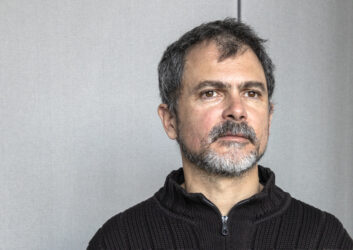EKA Arh conference 2024: Building Systems

10 October 2024 Estonian Academy of Arts Faculty of Architecture Põhja pst 7, Tallinn, Estonia
With the green turn and accelerating digitalisation and automation we are creating more and more complex systems that govern our lives and influence our environment in unprecedented ways. Building these complex systems – ecological, digital, social – do we leave enough room for subjectivity, or are we still stuck in modernist thinking, trying to engineer the world? Systemic solutions have created systemic problems in the past. The system built housing of the postwar era is deteriorating and substantially contributing to the climate crisis. At the same time we have a housing shortage in many growing cities. While fixing the mistakes of the past, we need to be sure not to make even bigger ones today, when digital platforms make innovations rapidly scalable. How can these complex systems be directed in a meaningful way? Do we need fully automated design and construction systems designed by good architects? Or should we leave the industrial and capitalist model behind and build social systems of participatory design and construction? Or can these approaches work hand in hand after all, to build systems that accommodate subjectivity and meaning? With “Building Systems” we want to look at the past, present and future of systemic thinking in all scales of the built environment and envision paths forward towards building systems of meaning.
EKA Arh conference is a biannual international peer-reviewed conference held as a satellite of the Tallinn Architecture Biennale. The previous iterations have been Space and Digital Reality in 2019 and Innovation and Digital Reality in 2022. The keynotes and papers are published in EKA Faculty of Architecture Proceedings.
Keynote speakers:
Construction Systems: Fabio Gramazio, ETH Zürich (Switzerland)

Fabio Gramazio is a Swiss architect, and Professor of Architecture and Digital Fabrication at the Swiss Federal Institute of Technology, ETH Zurich. He is the co-founder of the architecture and design group Gramazio Kohler Research, which focuses on the integration of new technologies in architectural design and construction. Gramazio has been a leading figure in the field of digital fabric ation in architecture, and his research and practice have contributed significantly to advancing the use of computational design and robotic technologies in the building industry. He has lectured and exhibited his work worldwide and has received numerous awards for his contributions to the field.
Material Systems: Mette Ramsgaard Thomsen, KADK (Denmark)

Mette Ramsgaard Thomsen examines the intersection of architecture and computational design. She founded the Centre for IT and Architecture (CITA) in 2005, pioneering research into digital-material relations and fostering international collaboration. Notably, she led projects like Innochain and “Eco-Metabolistic Modelling for Architectural Design.” Appointed Cret Chair at the University of Pennsylvania in 2022, she focuses on bio-based additive manufacturing. Thomsen’s leadership extends to global platforms; she served as General Reporter for the 2023 UIA World Congress of Architects, advocating for sustainable architecture aligned with UN SDGs. Her accolades include the Anna Nordlander Prize and the EliteForsk Prize. She’s also a Fellow of Digital Futures at the University of Tongji, Shanghai.
Urban Systems: Andres Sevtsuk, MIT (USA)

Andres Sevtsuk is an Associate Professor of Urban Science and Planning at MIT, where he directs the City Design and Development program group, and also leads the City Form Lab. His research focuses on making cities more walkable, sustainable and livable, bridging the fields of urban design, spatial analytics and mobility research. Andres is the author of the Urban Network Analysis toolbox, used by researchers and practitioners around the world to model pedestrian flows along city streets and to study coordinated land use and transportation development along networks. He has recently published a book entitled “Street Commerce: Creating Vibrant Urban Sidewalks with University of Pennsylvania Press.
